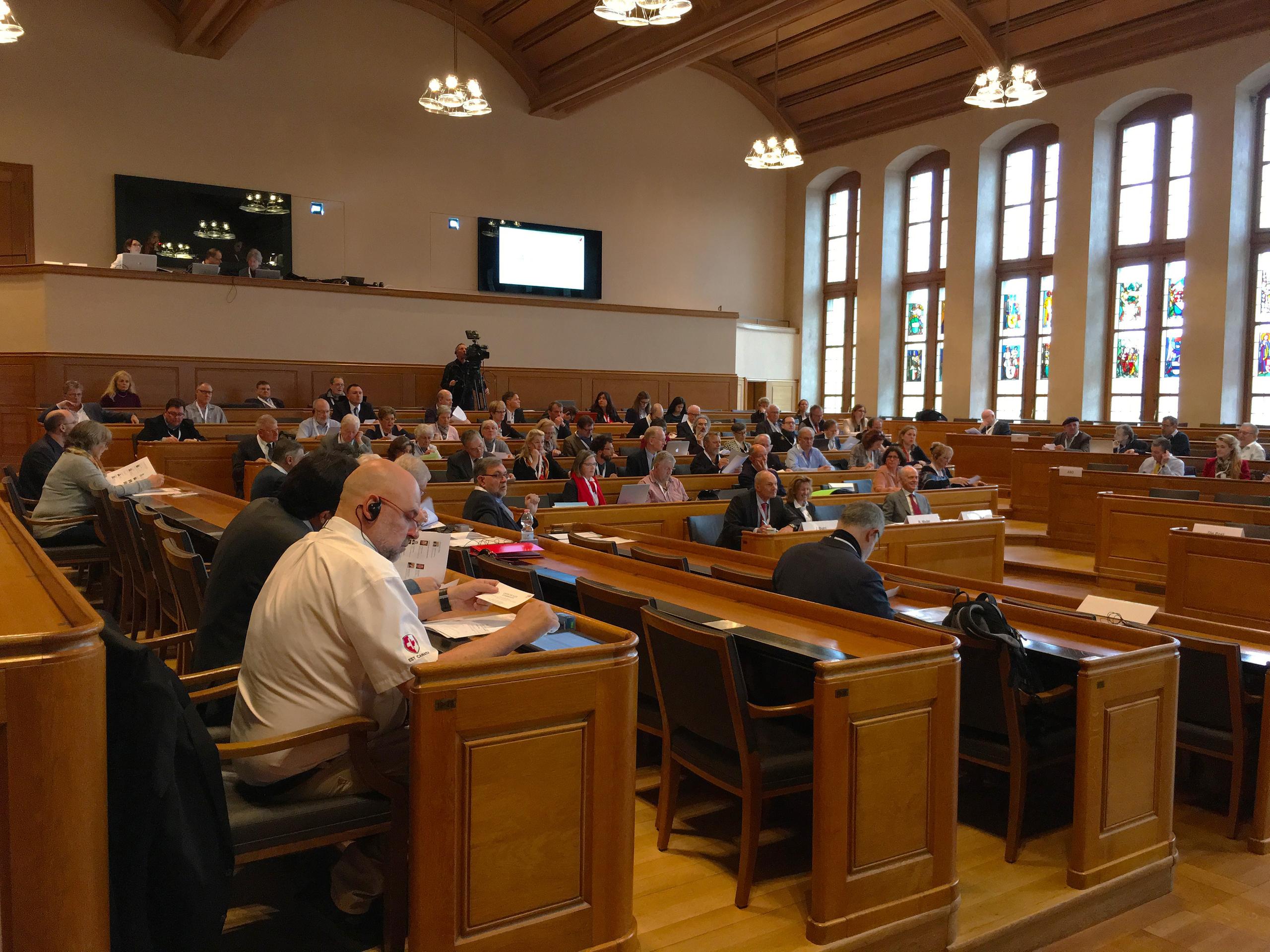
Expats between bank accounts and welfare benefits

The Council of the Swiss Abroad has called on parliament to reject a proposal linking welfare benefits to residence status in Switzerland or contributions to the country’s social security system.
In a resolution, adopted unanimously on Saturday, the assembly criticised the proposals of a committee of the House of Representatives as a breach of legal equality set down in the constitution.
“The proposals are tantamount to a blatant discrimination of all those Swiss citizens who live abroad [notably in countries outside the European Union and the European Free Trade Association (EFTA)] for whatever reason,” the resolution says.
It also contradicts the international mobility of citizens, according to the resolution.
In the same vein, council member François Baur, a representative of the Swiss Business Federation, said the proposals of the parliamentary committee were not at all in the interest of the Swiss economy, notably the export-oriented sector and companies with subsidiaries abroad.
The House of Representatives is due to discuss the issue next Wednesday.
+ Read more on the proposals and why the Organisation of the Swiss Abroad is opposed
The planned cuts in welfare benefits were just one of several parliamentary and other political issues discussed by the 140-member assemblyExternal link in the Swiss capital Bern on Saturday.

The council is part of the Organisation of the Swiss Abroad (OSA), which represents the interests of 780,000 Swiss citizens living across the world. About 158,400 of them have registered to take part in votes and elections in Switzerland.
Banking woes
OSA President Remo Gysin, who chaired Saturday’s assembly, presented details of an accord with several Swiss financial institutions aimed at easing tensions over access to bank accounts for Swiss citizens abroad.
Gysin announced that the Geneva Cantonal Bank agreed to offer bank accounts to all Swiss expatriates who comply with international regulations.
“I hope the deal will set an example for the whole sector,” Gysin said.
He added that the five major Swiss financial institutions were willing to boost cooperation with the OSA and the government, posting essential client information on the OSA and foreign ministry websites.
The banks also agreed to appoint special advisers and to make it easier for expats to open a bank account in Switzerland.
Progress
“We made progress after years of deadlock but we haven’t reached the end of the road yet,” said Gysin.
He promised to review the situation in two years.
+ Why parliament refused to take action and why the OSA is still optimistic
OSA vice-president and Senator Filippo Lombardi added that the political pressure built up in parliament over the past few years was beginning to pay out.
“The banks made a moral and technical commitment. Having them sit at a table with us was an achievement after nine years of stalemate,” Lombardi said.
He said new and amended motions would be launched in parliament if the overall situation did not improve for Swiss expat banking clients.
E-voting
A priority for the Swiss expat community is electronic voting and therefore a recurring topic at council meetings.

More
Ten arguments for and against e-voting
OSA director Ariane Rustichelli led a discussion with parliamentarian Franz Grüter, a former IT businessman, and Claudia Pletscher from Swiss Post, which has developed an e-vote system together with a Spanish company.
The People’s Party politician argued that the risks of cyberattacks were inevitable and would undermine the credibility of direct democratic tools, notably votes and elections.
“The question is not whether there will be an attack, but when the attack will happen,” Grüter said. Many of his statements prompted accusations of “scaremongering” from the audience.
For her part, Pletscher said her company had developed a system where hacker attacks and manipulations do not go unnoticed.
“There is no absolute security, but we can assure control over the transfer of a vote online.”
Perhaps unsurprisingly, many delegates expressed a lively interest in the subject but appeared to agree with proponents of e-voting.
The first trials with e-voting were launched in 2004 in canton Geneva. Since then, about 200 tests with a limited number of voters, notably within the Swiss Abroad community, have taken place in 14 of the 26 Swiss cantons.
The Swiss government said it wanted most cantons to grant their voters the e-voting option for the next parliamentary elections in October 2019. The OSA insists that all Swiss expatriates be able to elect members of the House of Representatives online.
+ The long road to e-voting for the Swiss Abroad
The council unanimously approved a request by the Swiss Center of North AmericaExternal link to join the OSA as an associate member.
The non-profit organisation, based in New Glarus, is dedicated to the preservation and promotion of Swiss cultural heritage in the US and Canada.
The New York Swiss Gymnastic SocietyExternal link was also made an associate member of the OSA.

In compliance with the JTI standards
More: SWI swissinfo.ch certified by the Journalism Trust Initiative





























You can find an overview of ongoing debates with our journalists here . Please join us!
If you want to start a conversation about a topic raised in this article or want to report factual errors, email us at english@swissinfo.ch.